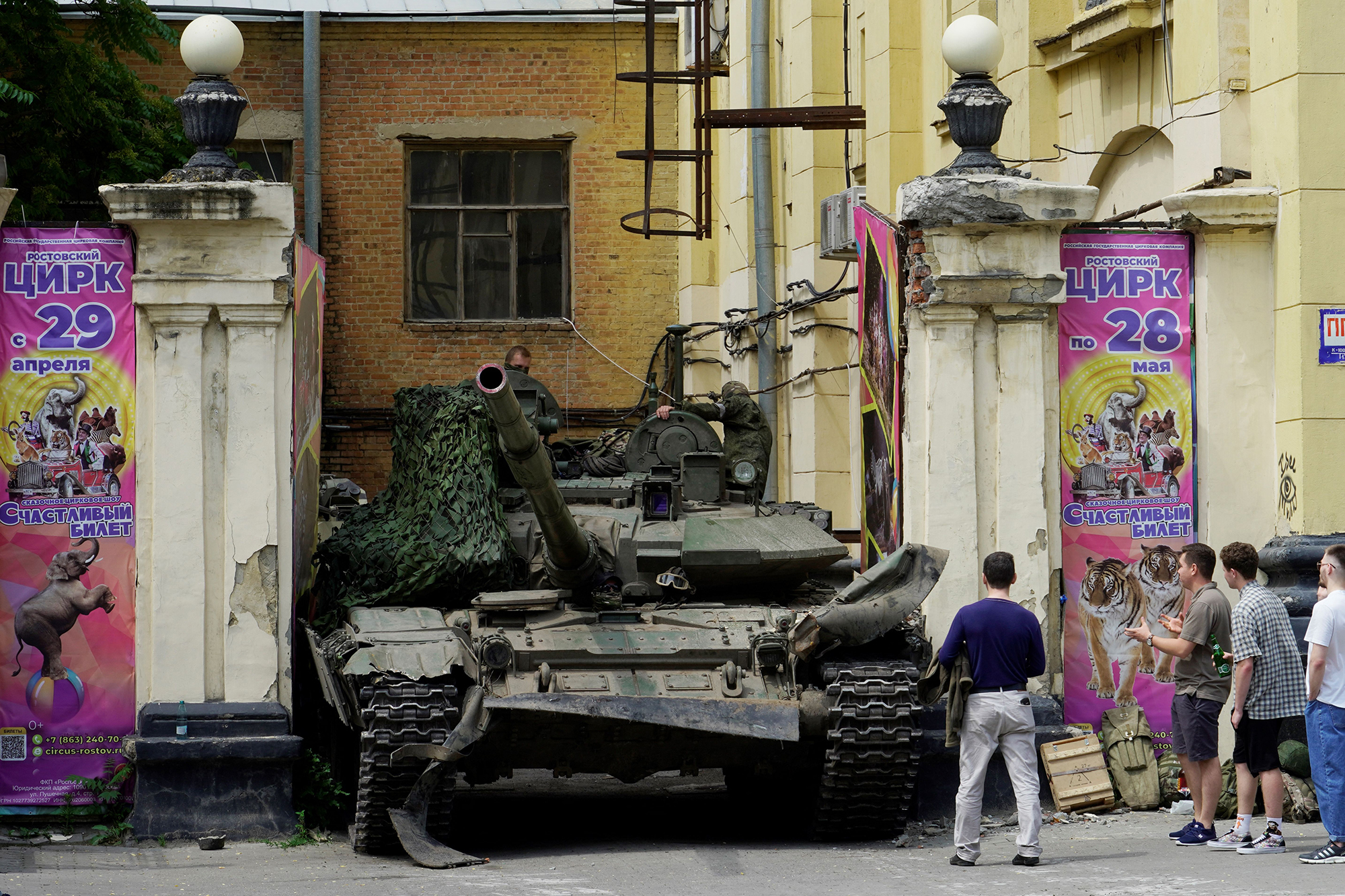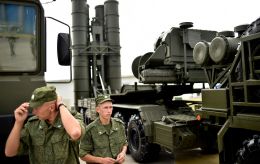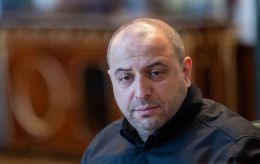Prigozhin's fate in Russian plane crash - More details
 Evgeny Prigozhin, leader of the Wagner PMC (photo: Russian Media)
Evgeny Prigozhin, leader of the Wagner PMC (photo: Russian Media)
In the Russian Tver region, a business jet carrying the leader of the "Wagner" PMC (Private Military Company), Yevgeny Prigozhin, crashed. A Russian terrorist was also among the passengers on the plane.
What happened
On the evening of August 23, videos of a plane crash in the Tver region appeared on Russian Telegram channels. Initially, it was believed to be a military aircraft crash, but it was later revealed that the accident involved the Embraer Legacy 600 business jet used by Prigozhin.
"Almost immediately after the information about the plane crash emerged, "Rosaviatsiya" reported that the leader of the 'Wagner' group was among its passengers. This promptness surprised some Russian media outlets, as typically, confirmations from "Rosaviatsiya" appear at least several hours after a catastrophe."
Who was on board Prigozhin's plane:
- Sergey Propustin - fighter of the Wagner Private Military Group;
- Yevgeny Makaryan - fighter of the Wagner Private Military Group;
- Alexander Totmin;
- Valeryi Chekalov - deputy of Prigozhin;
- Dmitry Utkin - commander of the Wagner Private Military Group;
- Nikolai Matuseev;
- Yevgeny Prigozhin - leader of the Wagner Private Military Group.
Presently, the circumstances surrounding the plane crash remain shrouded in mystery. Initial videos capturing the plane's descent depict witnesses attesting to the sound of two explosions, with some expressing jubilation, believing it to be a "downed drone." Speculation about sabotage as a potential cause has circulated within Russian media circles. Nevertheless, Russian law enforcement has formally launched an investigation centered on infractions related to air traffic safety and aircraft operation regulations.
Intriguingly, certain Russian war correspondents and propagandists have put forward a theory suggesting that Prigozhin's aircraft might have been inadvertently targeted by the Russian S-300 air defense system during its flight from Moscow to St. Petersburg. This theory posits that such an incident could have been construed as a response by Russian President Vladimir Putin to the Wagner group's insurgent activities, including their ill-fated operation near Moscow.
Is Prigozhin alive
Currently, it is known that there were 10 people on board the plane (three crew members and seven passengers). According to "Rosaviatsiya," Prigozhin was supposed to be on the plane, but whether he was actually on board is still unknown.
However, the Russian public outlet Readovka, citing its own sources, reported that Prigozhin did indeed die in the plane crash. The death of Prigozhin was also announced by the Telegram channel Grey Zone, which is close to the Wagner PMC, adding that it happened "as a result of the actions of Russia's traitors." Additionally, the Russian channel "Tsargrad" claimed to have identified Prigozhin's body at the crash site. They purportedly found the body of his right-hand man, Wagner PMC commander Dmitry Utkin, along with him.
Officially, as reported by Russian media, 8 bodies were found at the crash site. The specific identities of these bodies have not been disclosed yet, but Russian sources have mentioned that they are heavily damaged, necessitating genetic testing.
One of the Russian propagandists also confirmed that Prigozhin had returned to Russia from Africa today, where he had recently recorded a video criticizing the Russian military leadership and discussing plans for Africa.
Prigozhin's failed rebellion
In June of this year, Prigozhin rebelled against Putin and declared a "march on Moscow." This was preceded by conflicts between Prigozhin and Russia's military leadership (Defense Minister Sergey Shoigu and Chief of the General Staff Valery Gerasimov), which escalated into Russian airstrikes on the rear positions of the Wagner PMC.
In the artillery shelling of Wagner PMC positions, Prigozhin accused Shoigu and Gerasimov of trying to disband the PMC and bring the militants under the control of the Ministry of Defense. He announced that he was joining the Wagner PMC militants on a march to Moscow to seek a change in Russia's military leadership from Putin. Initially, the Wagner PMC members arrived in Rostov-on-Don, where they seized the headquarters of the occupying forces in Ukraine.
Russian dictator Vladimir Putin, in a video address, characterized the actions of the Wagner PMC as a coup and a 'stab in the back of the country and the people.' However, the Wagner PMC militants never made it to Moscow.

Photo: Wagner PMC militants seized the headquarters of the Russian Army in Rostov in June (Getty Images)
After the Wagner PMC militants arrived in the Moscow region following clashes, Prigozhin announced that he was halting his "march" and redirecting the militants back to their original bases. This purportedly occurred after negotiations with Belarusian dictator Alexander Lukashenko, who offered him to "come to Belarus" along with his militants.
With this, Prigozhin's rebellion came to an end, and several thousand Wagner PMC militants were relocated to a field camp in Belarus. They remained there until today, but according to the National Resistance Center, it is likely that they will return to Russia.
Who is Prigozhin
Prigozhin owns the "Concord" holding, which organizes banquets for the Kremlin, operates restaurants in St. Petersburg and Moscow, and supplies food to government institutions, the Russian military, and Moscow schools. Thanks to this business, Prigozhin earned the nickname "Putin's Chef."
Before the war in Ukraine, Prigozhin had lost his former closeness to top Russian officials. According to the publication "Meduza," one reason for this was the support of St. Petersburg Governor Alexander Beglov by some members of Putin's administration in his conflict with Prigozhin. Additionally, in recent years, he had conflicts with Sergey Shoigu, dating back to the time of military operations in Syria, due to differing views on how the military should conduct warfare.
The Russian Ministry of Defense enlisted Prigozhin's PMC in the war in Ukraine in March, when it became evident that the regular army was struggling. Prigozhin's involvement in the war with the Wagner PMC militants helped him regain favor within the Russian political establishment. In July, after the capture of nearly the entire territory of the Luhansk region, Putin even awarded Prigozhin the title of "Hero of Russia."

